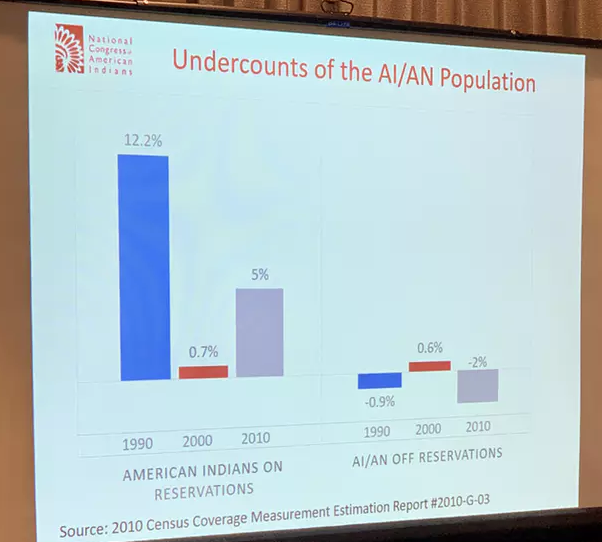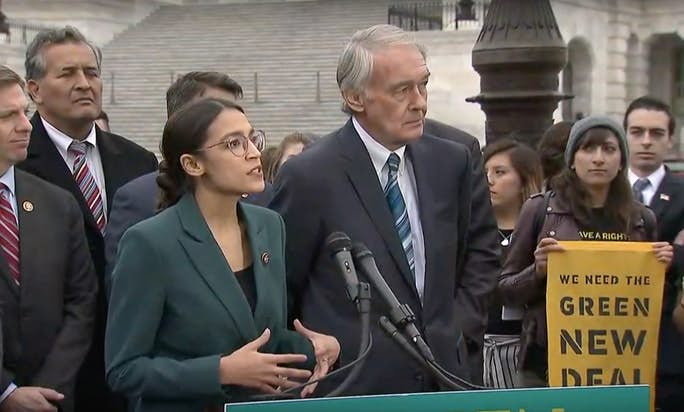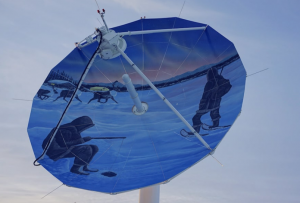Native Candidates Win Big at State and Federal Levels
https://www.nafoa.org/
Ellie Beckett at Ellie@nafoa.org
The 2018 midterm elections brought historic changes to the political landscape. Indian Country candidates campaigned in record numbers this year and a few made history. In addition to Native candidates, there were a number of state ballot measures that could impact economies across Indian Country. A summary is as follows:
Native Candidates Win Big at State and Federal Levels
Federal: Deb Haaland and Sharice Davids Join Reps Cole and Mullin in the House of the Representatives
- Deb Haaland (D, Pueblo Laguna) defeated Janice Arnold Jones (R) 59%-36.4% in New Mexico’s 1st District.
- Sharice Davids (D, Ho-Chunk Nation) defeated Kevin Yoder (R) 53.3%-44.2 in Kansas’s 3rd District.
Haaland and Davids are the first Native American women ever elected to Congress.
- Tom Cole (R, Chickasaw Nation) defeated Mary Brannon (D) 63.1%-33% in Oklahoma’s 4th District.
- Markwayne Mullin (R, Cherokee Nation) defeated Jason Nichols (D) 65%-30.1% in Oklahoma’s 2nd District.
State: Native Candidates Make History in State Governments Across the U.S.
- Kevin Stitt (R, Cherokee Nation) won Oklahoma’s race for governor.
Stitt is Oklahoma’s first Native American governor - Peggy Flanagan (DFL, White Earth Band of Ojibwe) won the Lt. Governor race in Minnesota.
Flanagan is the first Native American woman in the nation’s history to be elected into an executive office. - Andi LeBeau-Clifford (D, Northern Arapaho) won a seat in the Wyoming legislature in House District 33.
- Arlando Teller (D, Navajo Nation) won a seat as a State Representative for District 7 in the Arizona House Legislature.
- Debra Lekanoff (D, Swinomish Tribe) won a seat for State Representative in the 40th District Position 1 in Washington.
- Jamescita Peshlakai (D, Diné ) won a seat for Arizona Senate District 7.
- Jamie Becker-Finn (DFL, Leech Lake Band of Ojibwe) won a seat to Minnesota’s House District 42B.
- John McCoy (D, Tulalip Tribes of Washington) won a seat for State Senator from Washington’s 38th Legislative District.
- Johnathan Windyboy (D, Chippewa Cree) won a seat for Montana’s House District 32.
- Mary Kunesh-Podein (DFL, Standing Rock Sioux) won Minnesota House seat 41B.
- Myron Tsosie (D, Navajo Nation) won a seat as a Representative for District 7 in the Arizona House Legislature.
- Rae Peppers (D, Crow Tribe) won a seat for Montana’s House District 41.
- Red Dawn Foster (D, Oglala Sioux) won a seat for the South Dakota State Senate District 27.
- Richard Marcellais (D-NPL, Turtle Mountain Band of Chippewa) won North Dakota’s State Senate seat in District 9.
- Ruth Buffalo (D, Mandan, Hidatsa, and Arikara Tribes – Three Affiliated) won a State House seat in North Dakota’s District 27.
- Sally Ann Gonzales (D, Pascua Yaqui Tribe) won a seat to represent District 3 in Arizona’s State Senate.
- Shane Morigeau (D, Confederated Salish and Kootenai Tribes of the Flathead Nation) won a seat to represent Montana’s House District 95.
- Sharon Stewart Peregoy (D, Crow Tribe) won a seat to represent Montana’s House District 42.
- Susan Webber (D, Blackfeet Nation) won a seat to represent District 8 in the Montana State Senate.
- Tyson Running Wolf (D, Blackfeet Nation) won a seat to represent Montana’s House District 16.
- Victoria Steele (D, Seneca/Mingo) won a seat to represent District 9 in Arizona’s State Senate.
*This may not be an exhaustive list
Ballot Measures Impacting Indian Country
Energy
- Arizona voters rejected a constitutional amendment that would have required electric utilities to acquire a certain percentage of electricity from renewable resources each year, with 50 percent coming from renewable energy resources by 2030, leaving in place the state’s existing renewable energy requirements of 15 percent by 2025.
- Nevada voters, on the other hand, approved a constitutional amendment requiring electric utilities to acquire 50 percent of their electricity from renewable resources by 2030.
- Washington voters rejected a climate change-focused ballot initiative that would have enacted the nation’s first carbon emissions fee on large emitters of carbon.
- Colorado voters defeated a ballot measure that would have drastically limited new oil and gas drilling in the state by requiring drilling operations to be a minimum of 2,500 feet away from vulnerable locations like schools, homes, and water sources – up from 500 feet.
Cannabis
- Michigan voters legalized marijuana for adult recreational use, making Michigan the first state in the midwest to legalize the substance.
- Missouri voters had 3 cannabis-based measures to vote on yesterday. The one that held the day permits cannabis for medicinal use. It allows residents to grow cannabis at home and it puts tax proceeds towards health programs for veterans.
- Utah voted to legalize marijuana for medicinal use, though details of implementation will likely change. In the lead-up to the election, advocates and lawmakers agreed to a legislative compromise as to how to implement the initiative.
- North Dakota voted against legalizing marijuana for adult recreational use.
Medicaid Expansion
- Idaho, Utah, and Nebraska all voted to expand Medicaid eligibility to those under 65 whose income is below or equal to 133% (Idaho) or 138% (Utah and Nebraska) of the poverty line.
- Montana voted against a measure that would expand Medicaid eligibility and raise taxes on tobacco products.
Gaming
- In an effort led by the Seminole Tribe of Florida, over 71% of Florida voters approved an amendment that requires all future non-Indian gaming proposals to be put to a vote of the people that must be approved by 60%. The measure protects the tribe’s current gaming facilities from future threats.
For questions or comments please contact Ellie Beckett at Ellie@nafoa.org or (202) 841-3373.





Comments are closed here.